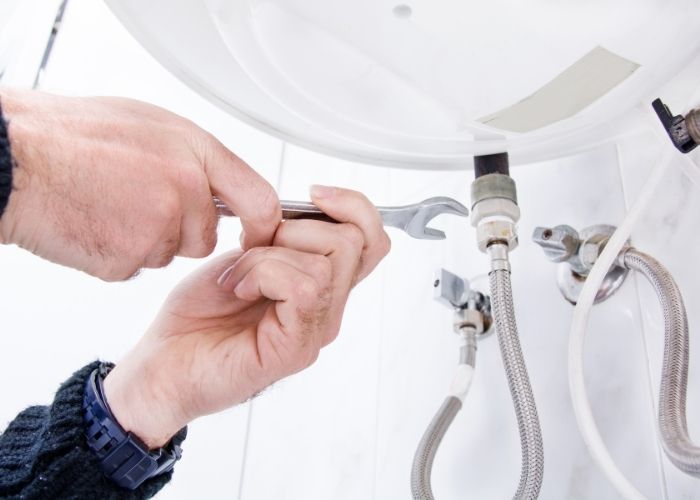Plumbing is an essential part of our daily lives that often goes unnoticed until something goes wrong. We turn on the faucet to wash our hands, flush the toilet, take a shower, or run the dishwasher, all without thinking much about it. However, plumbing is a marvel of modern civilization that provides us with clean water, sanitation, and convenience. In this blog, we will explore the crucial role plumbing plays in our lives, why it is indispensable, and how it has evolved over the centuries.
A Brief History of Plumbing
Plumbing has a long and fascinating history that dates back to ancient civilizations. The first rudimentary plumbing systems can be traced to the Indus Valley Civilization around 2500 BCE, where they developed sewage and drainage systems. The ancient Egyptians also had plumbing systems, using copper pipes to transport water and create simple toilets.
The Romans are often credited with advancing plumbing technology significantly. They built complex aqueducts to transport fresh water to cities and developed a system of lead pipes and drainage to remove wastewater. These early plumbing systems laid the foundation for the plumbing innovations that followed in the centuries to come.
The Importance of Plumbing
- Access to Clean Water
One of the most critical aspects of plumbing is providing access to clean, safe drinking water. In developed countries, we often take this for granted, but it’s a luxury that many people around the world still lack. Plumbing systems ensure that water from various sources, such as lakes, rivers, or reservoirs, is treated and delivered to our homes in a clean and potable form.
Clean water is vital for drinking, cooking, and maintaining personal hygiene. Without plumbing, obtaining safe drinking water would be a significant challenge, leading to a higher risk of waterborne diseases and a lower overall quality of life.
- Sanitation and Public Health
Plumbing systems play a pivotal role in maintaining public health. They provide a means to remove wastewater and sewage from our homes and dispose of it safely. In the absence of proper plumbing, human waste and sewage would accumulate, creating breeding grounds for disease-causing pathogens.
Historically, cities without adequate plumbing systems faced rampant outbreaks of diseases like cholera and typhoid. The development of sewage systems and modern plumbing has been instrumental in reducing the spread of these diseases and improving overall public health.
- Convenience and Comfort
Plumbing systems bring unmatched convenience and comfort to our daily lives. Imagine a world without indoor toilets, showers, or kitchen sinks. Plumbing allows us to access water where we need it, when we need it. It simplifies tasks like washing dishes, taking a shower, or doing laundry.
Indoor plumbing also reduces the effort required for daily chores, making our lives more comfortable and efficient. The convenience of plumbing is so ingrained in our daily routines that we hardly notice it until something goes wrong.
- Environmental Considerations
Modern plumbing systems are designed with environmental considerations in mind. Water-saving fixtures like low-flow toilets and efficient faucets help conserve water resources. Additionally, wastewater treatment facilities help clean and purify sewage before it is released back into the environment, reducing pollution and protecting natural ecosystems.
Plumbing also plays a role in energy conservation. Water heaters and HVAC systems often rely on plumbing connections to function efficiently. Properly designed plumbing systems can contribute to reduced energy consumption, leading to lower utility bills and a smaller carbon footprint.
- Economic Impact
Plumbing has a substantial economic impact on both the individual and society as a whole. On a personal level, plumbing increases property values. Homes with modern plumbing systems are more desirable and command higher prices in the real estate market.
From a broader perspective, plumbing supports various industries, including construction, manufacturing, and maintenance. Plumbers, pipefitters, and other professionals in the plumbing industry provide essential services and contribute to job creation and economic growth.
Plumbing Innovations
The plumbing industry has seen significant advancements over the years, driven by technological innovation and a growing awareness of the need for sustainability. Here are some notable plumbing innovations:
- Water-Saving Fixtures: To address water conservation concerns, low-flow toilets, water-efficient faucets, and showerheads have become standard in many households. These fixtures use less water without sacrificing performance.
- Tankless Water Heaters: Tankless or on-demand water heaters heat water as needed, eliminating the need for a storage tank. They are more energy-efficient and provide hot water on demand, reducing energy waste.
- PEX Plumbing: Cross-linked polyethylene (PEX) piping has become a popular alternative to traditional copper or PVC pipes. PEX is more flexible, cost-effective, and resistant to corrosion, making it an attractive choice for plumbing installations.
- Greywater Systems: Greywater systems recycle water from sinks, showers, and washing machines for use in irrigation or toilet flushing. This technology reduces water consumption and lowers utility bills.
- Smart Plumbing Technology: The rise of the Internet of Things (IoT) has led to the development of smart plumbing solutions. These include smart faucets, leak detection systems, and water quality monitors that can be controlled and monitored remotely through mobile apps.
Common Plumbing Issues
While plumbing is essential for our daily lives, it’s not without its challenges. Plumbing systems can develop issues over time, leading to inconveniences and potential damage. Here are some common plumbing problems homeowners may encounter:
- Leaky Faucets: A dripping faucet not only wastes water but also increases water bills. Leaky faucets are usually caused by worn-out washers or seals.
- Clogged Drains: Whether it’s a kitchen sink, bathroom drain, or toilet, clogs are a common plumbing problem. They can result from a buildup of debris, grease, hair, or foreign objects in the pipes.
- Running Toilets: A running toilet can waste a significant amount of water. It’s often caused by a faulty flapper valve or a fill valve that needs adjustment or replacement.
- Low Water Pressure: Reduced water pressure can make tasks like showering and dishwashing frustrating. It can result from mineral buildup in pipes, a faulty pressure regulator, or other issues.
- Burst Pipes: Cold weather or age can cause pipes to freeze and burst. This can lead to water damage and requires immediate attention from a plumber.
- Sewer Line Issues: Problems with the main sewer line can cause toilets to back up or drains to run slowly. These issues often require professional inspection and repair.
- Water Heater Problems: Water heaters may develop issues such as a lack of hot water, strange noises, or leaks. Regular maintenance can help prevent these problems.
The Role of Plumbers
When plumbing issues arise, the expertise of plumbers becomes invaluable. Plumbers are trained professionals who specialize in the installation, maintenance, and repair of plumbing systems. They play a crucial role in ensuring that our plumbing systems function correctly and efficiently.
Here are some of the key responsibilities of plumbers:
- Installation: Plumbers install pipes, fixtures, and appliances to ensure they function correctly and comply with local building codes and regulations.
- Maintenance: Regular maintenance, such as inspecting for leaks, checking water pressure, and flushing water heaters, helps prevent major plumbing problems.
- Repairs: When plumbing issues occur, plumbers diagnose the problem and make the necessary repairs. This includes fixing leaks, unclogging drains, and replacing damaged pipes.
- Emergency Services: Plumbers are available for emergency services, such as burst pipes or sewage backups, to minimize damage and restore functionality.
- Upgrades and Renovations: Plumbers are often involved in home remodeling and renovation projects, where they may need to reroute or upgrade plumbing systems to accommodate changes in layout or fixtures.
The Future of Plumbing
As technology continues to advance, the plumbing industry will likely see further innovations and improvements. Here are some trends and developments to watch for in the future of plumbing:
- Sustainable Practices: Water conservation and sustainability will remain at the forefront of plumbing practices. Innovations in greywater recycling, rainwater harvesting, and water-efficient fixtures will become more common.
- Smart Plumbing: IoT-connected devices will continue to gain popularity in plumbing systems. Smart faucets, leak detectors, and water quality sensors will provide homeowners with more control and insights into their plumbing systems.
- Enhanced Water Filtration: With growing concerns about water quality, advanced filtration systems will become more prevalent in homes. These systems will remove contaminants and ensure safe drinking water.
- Eco-Friendly Materials: Plumbing pipes and fixtures made from eco-friendly materials will gain traction. These materials will be durable, corrosion-resistant, and recyclable.
- Advanced Leak Detection: Leak detection technology will become more sophisticated, allowing for real-time monitoring and immediate alerts in case of leaks.
Conclusion
Plumbing is an indispensable part of modern life that provides us with clean water, sanitation, and convenience. It has a profound impact on our health, comfort, and overall quality of life. From its humble beginnings in ancient civilizations to the advanced systems of today, plumbing has come a long way. As we move into the future, plumbing will continue to evolve, incorporating sustainable practices and cutting-edge technology to meet the changing needs of society. It’s essential to recognize and appreciate the importance of plumbing and the professionals who ensure that our plumbing systems function seamlessly.

